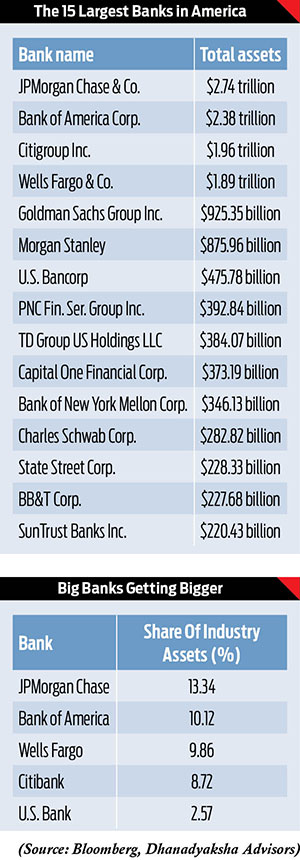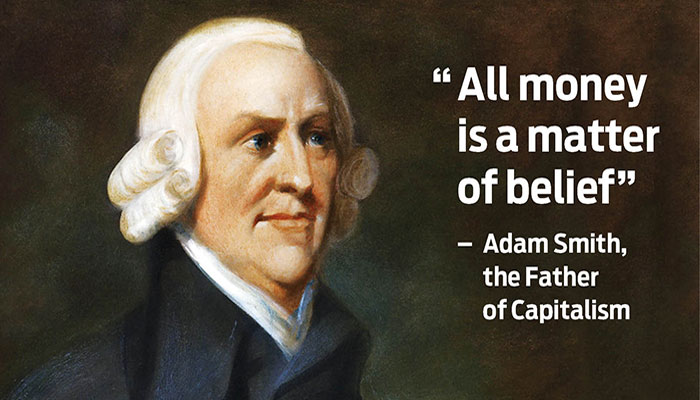Massive economic cycles indicate that financial markets are not efficient and this inefficiency incites the speculation of the stock market. In the markets, investors build their beliefs on the beliefs and strategies of other participants. The idea of the re-imaging the finance is to integrate the belief of investors with the real economy. The governments need to tackle the monetary question as a priority. The only path possible is to reduce the speculation in finance. We have seen in the past fifteen years that speculation has caused the instability of the international financial system. Rushin Shah suggests we do not need to wait for another financial crisis to prove this.
The Crisis of Civilization
The stock market is a keystone and the symbol of capitalism. It still governs the public imagination of the world of hyper-powerful finance and governs the life of the largest companies. It fuels, breeds, and motivates speculation which has created risky traders, unsupervised hedge funds, opaque tax heavens, myopic rating agencies, passive governments, and even heedless central banks. Speculative forces have become installed in the very heart of globalized finance. It has only increased due to easy leverage and multiple rounds of liquidity injections by the central banks.

is a buy side analyst at Canadian hedge fund. He can be reached at [email protected]
The financialization of the world economy is a recent phenomenon whose emergence has been marked by several stages since Bretton Woods accords of 1944. Thanks to World War II, the United States accumulated reserves of gold while other countries had hardly any. By 1971, the gold reserves of the U.S.A. have progressively dried up. President Richard Nixon decided to abandon the convertibility of dollars into gold and at the same time he put an end to fixed parities between the main currencies (i.e. euro/dollar). But the Americans would continue to make the dollar the indisputable reserve currency at the international level, which started the era of the fiat currency.
By the beginning of the 80s, governments, themselves were dependent on the markets for their financing and started deregulating the financial markets under the heavy influence of liberal ideas. The United States and the United Kingdom under the leadership of Ronald Regan and Margaret Thatcher respectively witnessed massive reforms in the banking industry and monetary policies. They developed the vast bond markets in which governments issued loans to finance public deficits. By the 90s, the dollar became an international currency and finance became a global phenomenon.
During this time, financial markets witnessed  a considerable development of the derivatives markets, the insane boom-and-bust of the dot-com-companies in 2000, followed by a deflationary phase of audit balancing, the growth of the real-estate bubble, the crisis of the sub-prime, and, finally, an explosion of public and corporate debt. These massive economic cycles indicate that financial markets are not efficient and this inefficiency incites the speculation of the stock market. Neo-liberals tried to promote new markets through liberalization of the exchange and interest rates, which results in the new booms in the price of the assets – stocks, real estate, commodities – and predictable havoc created by their collapse.
a considerable development of the derivatives markets, the insane boom-and-bust of the dot-com-companies in 2000, followed by a deflationary phase of audit balancing, the growth of the real-estate bubble, the crisis of the sub-prime, and, finally, an explosion of public and corporate debt. These massive economic cycles indicate that financial markets are not efficient and this inefficiency incites the speculation of the stock market. Neo-liberals tried to promote new markets through liberalization of the exchange and interest rates, which results in the new booms in the price of the assets – stocks, real estate, commodities – and predictable havoc created by their collapse.
The excessive financialization of the human activities has created a true crisis of civilization, also characterized by the risk of depletion of the planet and the extinction of the living, and thus entailing a veritable crisis of meaning.
The Rise of Too Big To Fail
The concentration of the finance in the hands of a few banks became so powerful that they were able to impose their views on the regulators. This domination results in the market power that these major banks exercise over the formation of their rates like the London Inter-bank Offered Rate (LIBOR). It should be borne in mind that these rates are today the reference rates for the monetary policies.
At the beginning of this century, as the world started becoming more globalized it made it possible for the major banks to manipulate these rates as per their interest. Their small numbers in size and enormous economic profits made them too big to fail. They became the true operator of the world’s monetary policies. When these banks begin to find the rules unsuitable, it is time for the rules to be changed. That’s how in spite of the chaotic events, major banks ended-up rising like a phoenix from the ashes.
In the last twenty years, ultra-powerful global finance has developed, thanks to the globalization. During this time, major banks have shaped their core activities around speculation. The banks are the culprit of the “financial innovations” linked derivatives products such as collateralized debt obligation (CDO). An endless innovation in derivatives, access to the easy leverage, and the insane use of it, are sources of a rampant and endlessly growing speculation. Today there are hardly any financial products without a speculative counterpart (i.e. derivatives).
Risk is a prominent feature of modern societies. We like to take certain risks and are willing to transfer some risks to others. Speculation is fed as much by bubble forming as it is by fears of the bubble bursting. Derivatives can be sold to investors while simultaneously counting on their fall because in reality their toxicity is known. The problem is not only the extent of risk and its probability of occurrence of bubble or burst but also the power to evaluate the extent of the damage that could be done if it was to occur.
Too big to fail banks have often been transformed their contradictions into opportunities. This raises the question that how far this can go. Will capitalism be able to go as far as to renounce its principles? Obviously not, and to believe it would be very naïve. Only a new set of power will succeed the influence of the too big to fail on capitalism. A world, without too big to fail, would be one that must fall back on its feet by eliminating the devastating madness of the liberalized financial markets.
Redefining the Shareholders’ Value
Stock markets of developed countries, especially of the United States, no longer fulfill their functions of financing the real economy. Debt financing is more favorable than equity financing. Companies adopted policies that aim to satisfy existing shareholders by increasing the value per share rather than diluting their ownership through equity financing. The policy of buying back shares by taking a massive amount of debt results in an increase in the leverage and stock prices.
Since the mid of the 1990s, volatility has continuously increased on the stock markets but it has lost its correlation with the intrinsic value of the companies. It means higher volatility feeds the speculation which in turn leads to the casino economy. It demonstrates the uselessness and harmfulness of modern finance. In some countries, the risk is systematically too high in relation to the average yield observed.
In order to raise the share price of the company and to increase the shareholder’s wealth, the directors no longer hesitate to lay off their workers in the name of cost minimization, cost rationalization, streamlining of the operations, etc. This madness has also developed psycho-social risks and degradation of working conditions, sources of stress, illness, and psychic sufferings. The consequences are well beyond imagination – unemployment, the high cost of living, the exclusion of the poorest, the vulnerability of the middle classes and lengthening lists of suicide victims over time. This crisis is not only financial but also social.
There is no denying that a confrontation between two orders of logic, capitalism and socialist has become inevitable. Institutional shareholders, with their increasingly excessive demands for superior profitability, are disrupting the business world and profoundly pressurizing them to keep pumping higher shareholder’s wealth. Corporates came under the domination of the ultra-power of a liberalized finance and the insane demands of shareholder’s value. With the diminishing rate of wages we enter an era of under-consumption by wage earners and simultaneously an over-accumulation of capital through an increase in dividends. It created inequality in society.
Re-Imagining Modern Finance
The challenges of our times are immense – of the environment, energy, food, water, and obvious challenges in the monetary order. These stakes are so fundamental that they call for new practices in finance. In the markets, investors build their beliefs on the beliefs and strategies of other participants. They seek to know what the others are thinking, will think or are going to do at any given moment. The idea of the re-imaging the finance is to integrate the belief of investors with the real economy. The governments need to tackle the monetary question as a priority. The only path possible is to reduce the speculation in finance. We have seen in the past fifteen years that speculation has caused the instability of the international financial system. We do not need to wait for another financial crisis to prove this.




















